Examples include stolen pallets of scarce courgettes and snow on the Spanish Costa Blanca and in Italy which left producers flabbergasted. The weather has also led to Turkish exporters seeing an increase in prices. With all this bad news however, the silver lining are all the impressive photos of the snowfall.
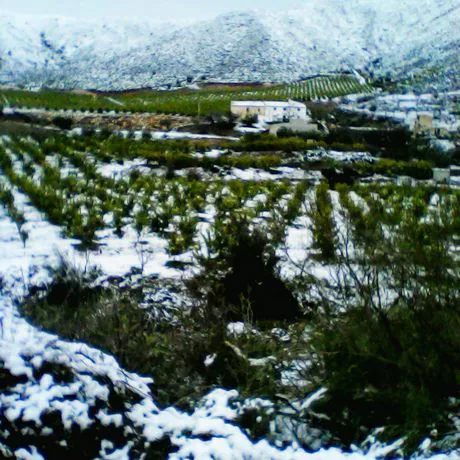
Source: Al-Arbuli SCA - Twitter
Traders are trying to get produce from Morocco and Tunisia after circumstances have made it more difficult for the Turkish supply. The weather isn't the only trouble though. One British importer even said that some products imported from Turkey exceeded the EU's MRL limits. With demand increasing and supplies low, importers are looking also to other places, flying in iceberg lettuce from the US and peppers from Mexico.
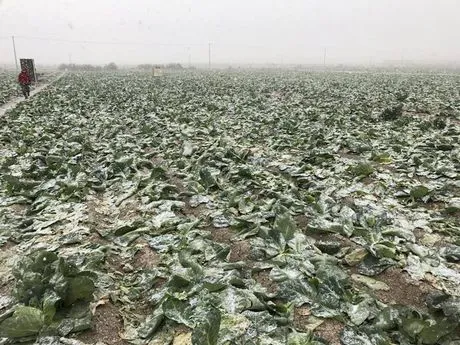
Source: Alcachofa de Espana - Twitter
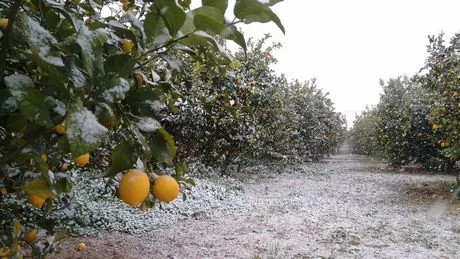
Source: Viveros Caliplant - Twitter
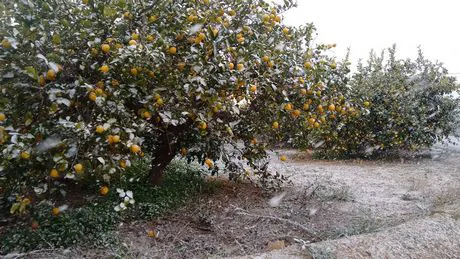
Source: Viveros Caliplant - Twitter
In the Bari region, in Apulia, the damage is wide reaching. A trader said that the whole fennel and courgette harvest has been lost. For parsley, celery and other crops they are reporting losses of 20 to 50%. Due to the low supply, prices in the market have increased. "The snow has melted and therefore we were able to make the first assessment of the losses," states a trader. The leaf crops have been completely lost under the weight of snow and frost. "It is uncertain what the consequences will be for the new production, which should reach the market in March/April." According to Italian media, there will be price speculation, but the trader has firmly rejected this information. "We will supply as much saleable product as possible and the higher prices should help us offset the damage. The smaller volumes entail that only 20% of the demand will be met. For many retailers, the situation is still uncertain, although they won't be able to ignore the consequences of the losses."
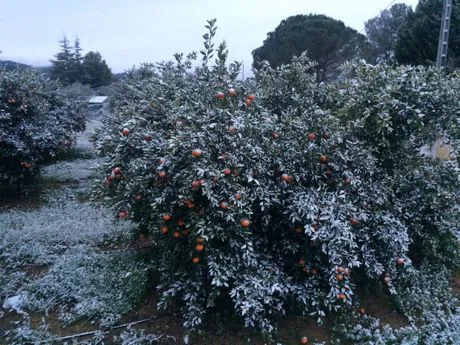
Source: Angel G.S. - Twitter
In southeastern Sicily, 60% of the courgette production has been lost, and tomato crops have also been affected. The current shortage in the supply and the rising prices is mostly a result of the smaller acreage. Many people had forgotten that last season was very bad, with an average price for cherry tomatoes ranging from 60 to 70 cents. That resulted in bankruptcies in the sector and a sharp decline in the acreage.
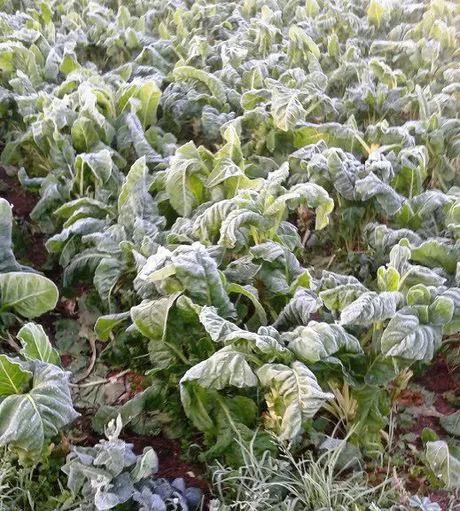
Source: FrutasMoraEspartinas - Twitter
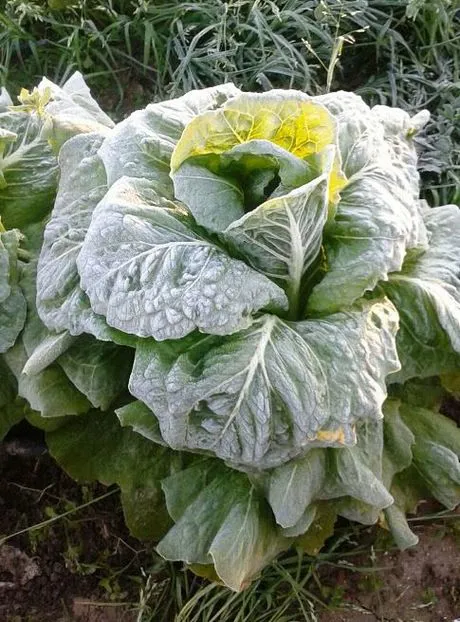
Source: FrutasMoraEspartinas - Twitter
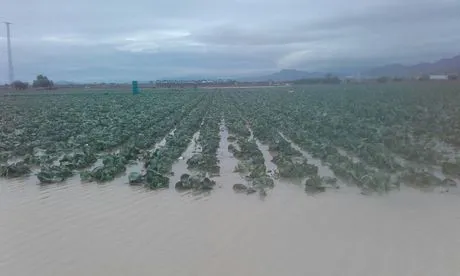
Spanish fields earlier this week. Source: VEG-UK Ltd - Twitter
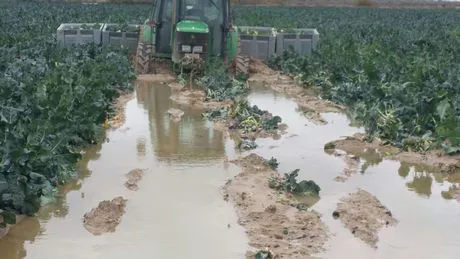
Not only frost and snow are playing tricks on the Spanish sector. Source: VEG-UK Ltd - Twitter
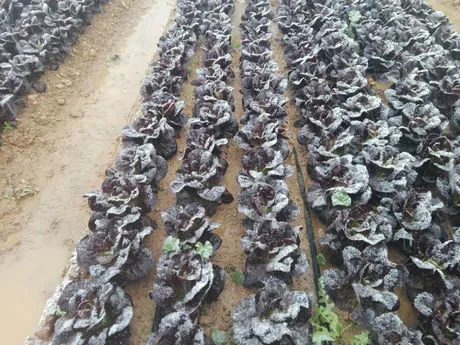
Source: VEG-UK Ltd - Twitter
Overall, estimates point to the loss of about 20% of the harvest. To recoup the losses the AGM has called on the government to intervene and has threatened to organise protests if no aid is granted.
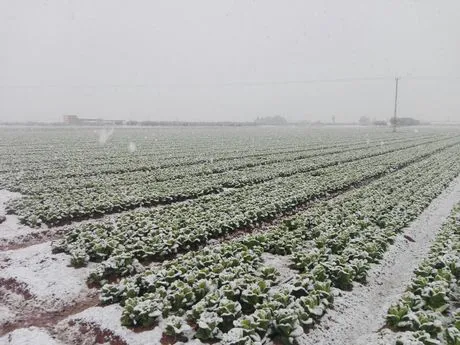
Source: VEG-UK Ltd - Twitter
The snowfall in Eastern Europe is also causing delays on the road. At border crossings like Kapikule and Hamzabeyli (between Turkey and Bulgaria) and Ipsala (between Turkey and Greece), traffic is slower due to the snow. The snow has also caused trucks to get stranded at border crossings. The Red Cross is assisting the drivers, some of whom have been given blankets and food for a few days.
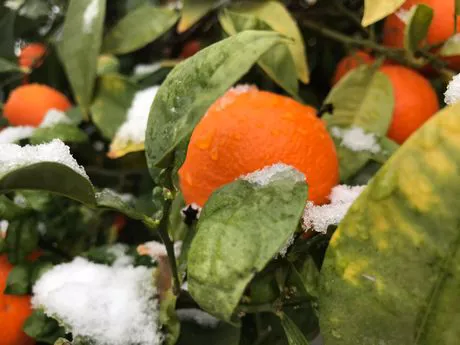
Source: Belsan - Twitter
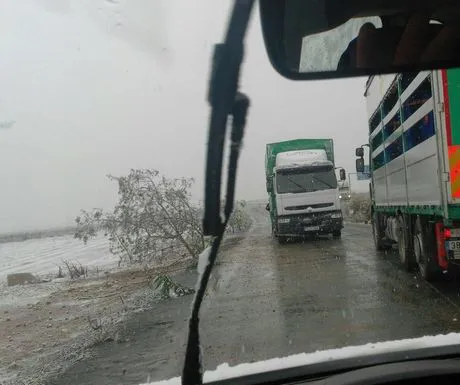
Source: Belsan - Twitter
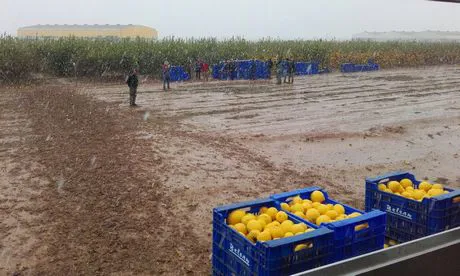
Source: Belsan - Twitter
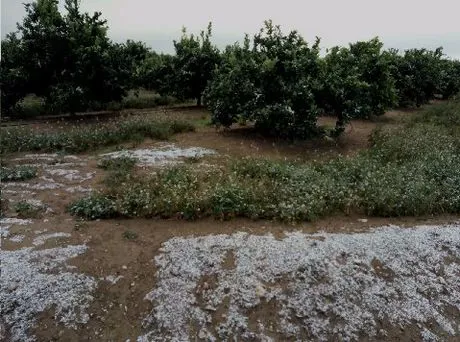
Shortages have led to changes to the menus of major restaurant chains. Normally, new menus are planned weeks in advance, but now changes have had to be quickly made. Leeks, courgettes, peppers or aubergines have to be replaced for white cabbage, red cabbage, savoy cabbage, carrots, potatoes and parsnip. "The situation will continue for 6 to 8 weeks and shortages will persist. Our Spanish supplier emailed to inform that he was only able to ship 9 pallets of broccoli from an order of 26 pallets."
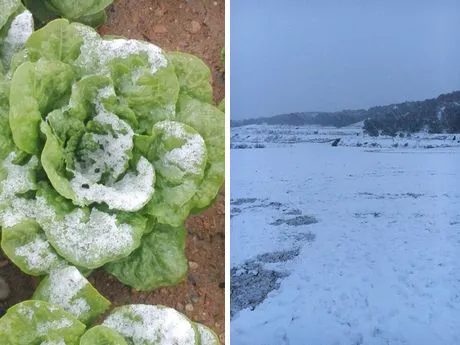
Source: VEG-UK Ltd - Twitter
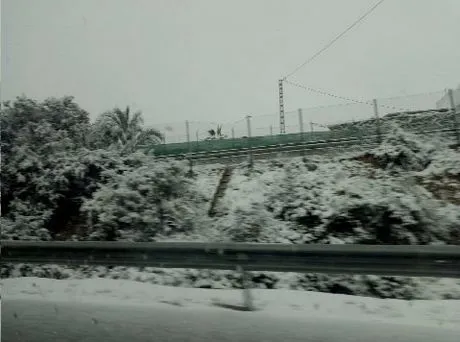
In the store, heads of iceberg lettuce are currently reaching prices of up to 2 Euro. Grower Henk van Doorne, of The Hague, has 80,000 heads of lettuce in his greenhouse, which are thus currently worth close to 160,000 Euro. "Last year, I got 15 to 18 cents per head; now the price per head is 55 to 60 cents. These prices will compensate for last year's financial gap," he explains. Henk says that it makes no sense now to fill his whole greenhouse with lettuce seedlings. "A small plant takes at least eight weeks to become a mature crop. By then, the market will have long changed and I won't longer be able to take advantage of the good prices paid right now."
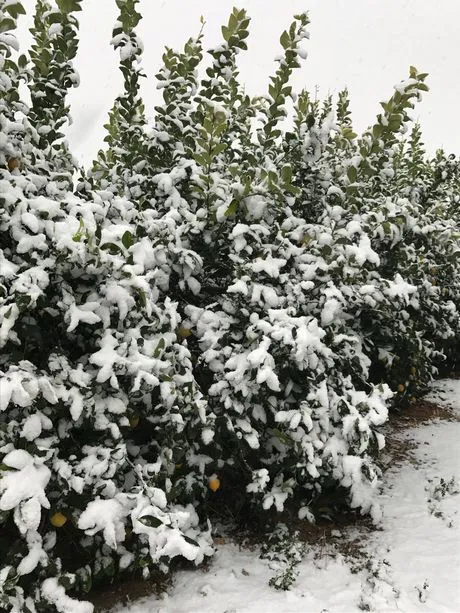
Source: cmesjo - Twitter
"For the past few weeks we have been keeping the pressure on our Spanish suppliers to fill our orders, which they have been doing. We have alerted you to certain lines already, but now it is all products. Our suppliers can only try to meet our orders by buying any produce available around them."
Canada: very cheap supply from Mexico
Due to a good season in Florida and Mexico there is a big supply in these areas. A Canadian importer said: "After the high prices last season many growers have planted more hoping to earn more money." This has resulted in a dramatic situation on the Canadian market for peppers, aubergine and tomatoes. "I am being offered 25 dollars from Spain and can get them from Mexico for 2 dollars. We are hoping a bit of balance will be restored and we can make some money."
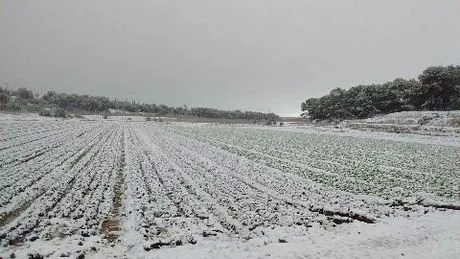
Cold weather in the US
The US is also battling cold weather. Due to this , and other issues there is less courgette production than normal, according to one trader. He also states that production from Mexico is also lower. He said that a colleague in Canada was importing very cheap courgettes. The American importer is moving between supply from Honduras and The Dominican Republic.
